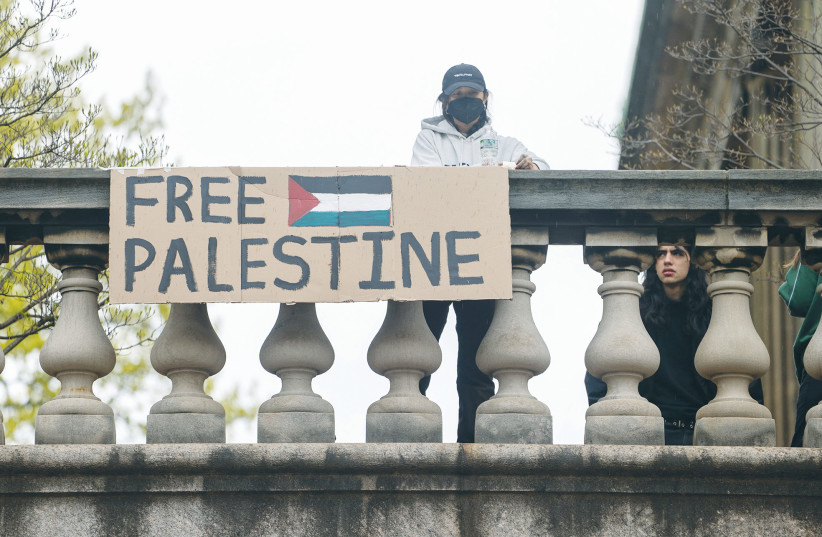Amid escalating antisemitism on US campuses, the International March of the Living announced the University Presidents and Chancellors Mission to the annual March of the Living, the organization stated in a press release.
This mission, occurring on Holocaust Remembrance Day, aimed to address the surge in antisemitism, particularly following recent attacks in Israel.
The March of Living program, held in Poland, offered a powerful form of exploration of Jewish culture and the atrocities of the Holocaust. Participants interacted with Holocaust survivors, accompanied by experts in Holocaust studies, genocide, and human rights.
The journey's pinnacle was the solemn march from Auschwitz to Birkenau on Holocaust Remembrance Day, a poignant act of remembrance and commemoration. Through this initiative, university leaders sought to deepen their understanding of antisemitism and its historical context, fostering a commitment to combat hatred, racism, and discrimination on college campuses.
The mission aimed to empower participants to bring their experiences back to their respective institutions, fostering a more inclusive and empathetic campus environment.
Dr. David Machlis, Vice Chairman of the International March of the Living, highlighted the paradox of Germany's education system and its role in the Holocaust, stating, "Germany, Europe’s most educated country, perpetrated the Holocaust." He emphasized the direct link between antisemitism and Auschwitz, urging university presidents to become allies in combating antisemitism and recognizing its devastating outcomes.
University leaders unite against antisemitism

A diverse cohort of university presidents and chancellors from America and Canada, including leaders from public, private, Catholic, Evangelical, and historically Black colleges and universities, participated in the 2024 International March of the Living.
This delegation, spearheaded by Dr. John King, Chancellor of SUNY, and Rabbi Dr. Ari Berman of Yeshiva University, represented a wide array of institutions such as Southwestern Assemblies of God University, Towson University, University of Ottawa, and Xavier University of Louisiana.
Rabbi Dr. Ari Berman, President of Yeshiva University, condemned the surge of campus antisemitism post-Hamas attacks, urging unity: "University presidents must stand against hate." He emphasized the importance of remembering Holocaust victims and condemning antisemitism globally, stating, "Never again is now."
Professor Mark R. Ginsberg, President of Towson University, stressed, "The lessons of the Holocaust provide context for rising antisemitism." He anticipated the March of the Living program's positive impact, and stated, "This experience will be highly consequential."
Eva Kuper, a Holocaust survivor saved by a Righteous Among the Nations, stressed the power of education, stating, "Education is the most powerful tool we have in fighting antisemitism, hatred, discrimination and war." She emphasized teaching future generations to remember, learn, and honor the past, while inspiring hope for the future, quoting Elie Wiesel: "Just as man cannot live without dreams, he cannot live without hope."
Kuper highlighted stories of human goodness amidst the Holocaust's horror, asserting, "There are indeed many stories of horror during the Holocaust, but there are also many stories which attest to man’s goodness. They too are a part of the history of the Holocaust."
The March of the Living, a cornerstone event on Holocaust Remembrance Day, saw thousands of students and dignitaries march alongside Holocaust survivors, commemorating the immense loss suffered by humanity.
Since 1988, over 300,000 participants have honored this solemn occasion by marching from Auschwitz I to Auschwitz II-Birkenau.
For Jewish students, this march in Poland was part of a broader journey culminating in a celebratory Independence Day March in Jerusalem. This year, the March was led by 55 Holocaust survivors, including seven impacted by the October 7th attacks in Israel.
